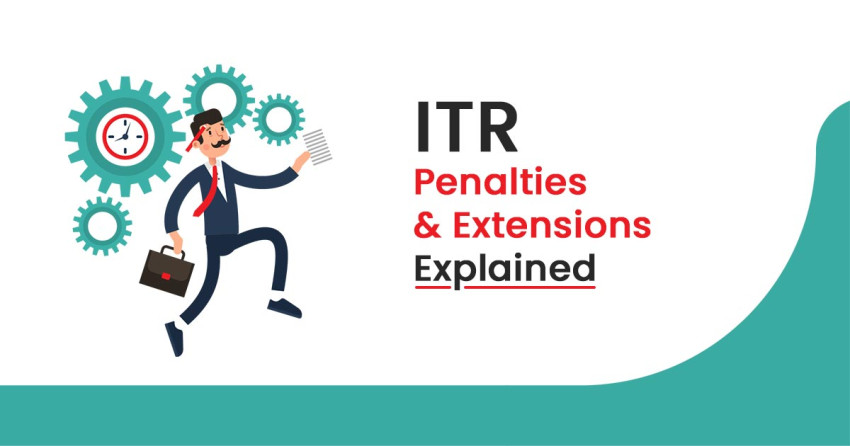
As the end of the financial year approaches, people and companies are ready to complete their annual income tax return filings. According to recent estimates, there has been a notable increase in the number of tax returns filed. For the 2022–2023 Assessment Year, 7.51 crores of tax returns were filed, representing a major increase from the 6.63 crores filed the previous year. Additionally, in the 2023-24 Assessment Year, the number of filed returns surged to over 8.18 crores.
For the financial year ending on March 31st, 2024, individuals must file their income tax return by July 31st, 2024. However, the process can be time-consuming and complex, especially in understanding required schedules and disclosures. Gathering all necessary data and tracking expenses from the previous year can be challenging, increasing the risk of missing the deadline. Hence, many individuals seek additional time to file their tax returns and prevent potential action from tax authorities.
Deadline for Filing in ITR
For those taxpayers who were unable to file by the original deadline, the Income Tax Department allows them to file a late return by December 31st of the year in which the return was due. Consequently, December 31st, 2024 is the deadline for filing a belated return for Assessment Year 2024–2025.
However, in addition to penalties in the form of interest and the loss of certain benefits typically granted to on-time filers, taxpayers who file a belated return will be liable for penalties totalling Rs. 1,000 if their income is less than Rs. 5,00,000 and Rs. 5,000 if their income exceeds Rs. 5,00,000. For a seamless and trouble-free transition, each taxpayer must prioritise good financial practices, and tax compliance becomes a legal requirement. See the possibilities for requesting an extension and learn more about the consequences of filing income tax returns beyond the deadline.
In case of losses incurred such as capital and business losses, they cannot be carried over or compensated in later years. Losses from house property, on the other hand, are an exemption and can be carried forward even in cases when returns are filed after the deadline.
If the income tax return is not e-file on time, deductions or exemptions under sections 10A, 10B, 80-IA, 80-IB, 80-IC, 80-ID, and 80-IE are disallowed if there's a delay in filing the income tax return. These tax-saving benefits are only applicable if the income tax return (ITR) is filed before the original deadline.
Exploring Late Filing Penalties in Detail
The Income Tax Act's section 234F has regulations that provide that filing an income tax return after the deadline is subject to a late filing penalty. Since the financial year 2021, the maximum penalty for late filing has been lowered by the IT Department from Rs. 10,000 to Rs. 5,000. However, taxpayers should not disregard the deadline since the Income Tax Department imposes additional penalties and limitations on late filers of income tax returns in addition to the late filing penalty. Small taxpayers will benefit from a cap on the maximum penalty for late reporting, which is INR 1,000 if your total income is less than INR 5 lakh. On the other hand, individuals with greater salaries can be penalised Rs 5,000 in full if they fail to file.
Missed Opportunities: The Impact of Not Carrying Forward Losses
One significant consequence of not filing your taxes on time is that you will not be able to carry forward some losses to subsequent assessment years. If the tax return is not filed on time, business or capital losses incurred during the fiscal year cannot be adjusted against future revenue. Losses from real estate are still allowable to be carried forward, but losses from other sources are not.
Tax Refunds Postponed Due to a Financial Disaster
Taxpayers who have less tax due than the total amount of taxes withheld or collected at source (also known as TDS or TCS) from their income may be eligible for a refund of the excess taxes withheld or collected. However, claiming this reimbursement is contingent upon the taxpayer filing their income tax return. In the event that the assessee files their income tax return (ITR) after the tax filing deadline and misses the deadline, the Department will only process the eligible refund after the assessee files their returns. Since the assessee's eligible income is sitting idle with the Department, the delay in collecting refunds from the Department could cause financial hardships for them, including cash flow problems or a delay in exploring other potential sources of revenue.
Impact of Unpaid Taxes on Accrued Interest
Delays in completing an income tax return (ITR) can result in penalties and interest being charged to those who file their returns after the deadline. The current interest rate is fixed at 1% for each month or portion thereof, as per Section 234A of the IT Act. This rate is computed to start on the day after the income tax return filing deadline. The purpose of this interest charge is to incentivize taxpayers to meet filing deadlines and deter late tax payments.
In order to expedite the refund process, taxpayers who qualify for government refunds for overpaid taxes should be sure to file their income tax forms by the deadline. Late filing might cause significant delays in returns, which can cause financial hardship and possibly cash flow issues.
Many companies offer specialized software in the Indian market to assist taxpayers with filing their income tax returns and avoid penalties. But, Gen Income Tax is the fastest software to e-file different ITR forms, challan payments, late filing penalties, tax extensions, and other financial implications related to income tax returns.
In Summary
It is essential to file your income tax return (ITR) on time in the complex world of tax legislation. Following these recommendations can help taxpayers avoid needless fines, interest costs, and delays. In addition, the Indian IT Department's admirable efforts to streamline processes and assist small taxpayers are noteworthy advancements towards creating a more tax-friendly environment.
It anticipates that increased tax compliance and a better overall experience for taxpayers will result from the broad use of digital platforms and the streamlining of tax filing procedures. To ensure a seamless and penalty-free tax filing procedure, taxpayers should stay informed about any updates or extensions granted by the authorities and make advance plans.



